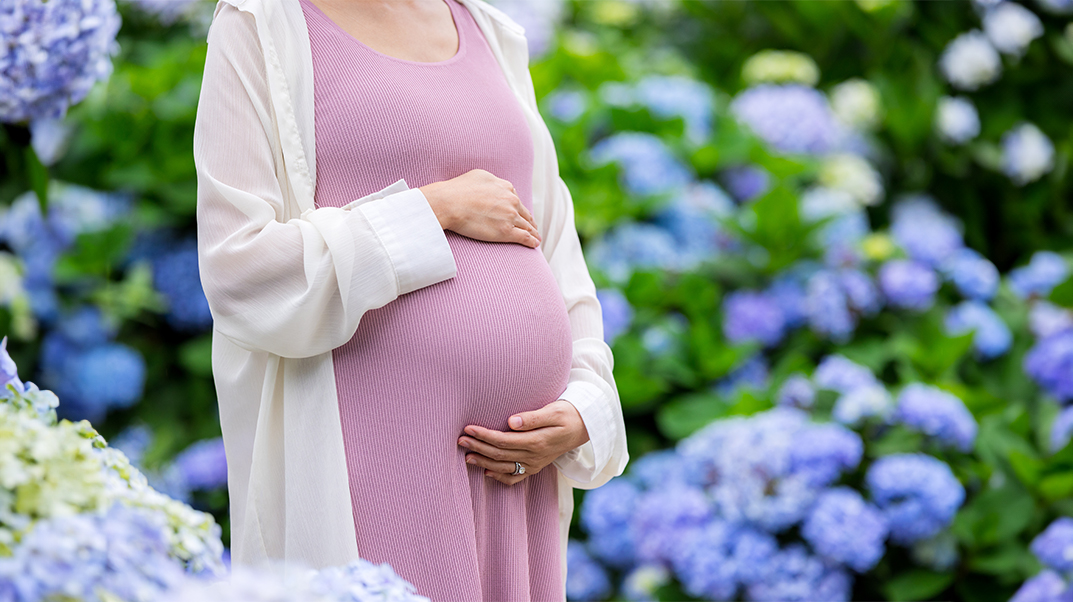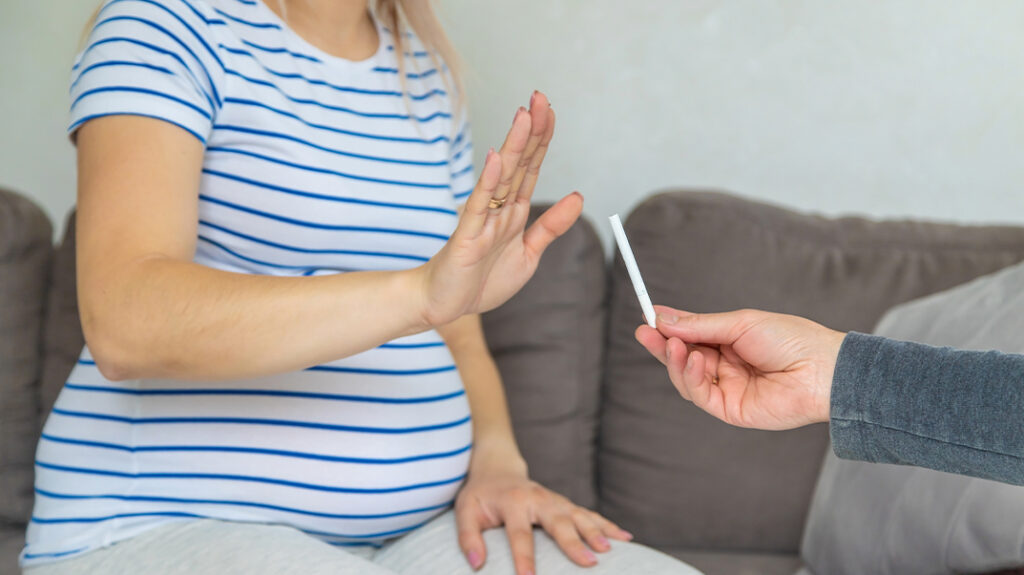blog tambre
Pollutants and fertility, how does the environment influence reproduction?

Table of contents
Although the impact of environmental pollution on reproductive health is often overlooked, more and more scientific studies are warning of the negative effects of pollutants on fertility.
We have long been aware of the negative health effects of air pollution, especially in densely populated urban areas. However, when we talk about “pollution“, we are not only referring to air quality, but also to other factors such as water quality, the presence of pesticides in our diet and the so-called endocrine disruptors found in the products we use on a daily basis.
Research has shown that certain chemical substances and compounds are linked to a wide range of health problems, including asthma, cardiovascular disease, dermatitis and various types of cancer. Increasingly however there is more evidence which demonstrates how pollution is affecting our reproductive capacity.
In addition to environmental pollutants, certain lifestyle habits are also detrimental to fertility, and we shall discuss these shortly.
At Clinica Tambre we believe that one of the main factors in the increase in infertility is the delay in maternal age, however we are seeing more and more cases in our clinic of patients with an ovarian reserve or oocyte quality or sperm quality that does not correspond to their age. This widespread situation has led experts to consider the impact and relationship between pollutants and fertility.
Pollutants and endocrine disruptors affecting fertility
Endocrine disruptors are chemicals found in our environment and surroundings. These disruptors “mimic” the function of hormones, which alter their function, either by blocking them or exacerbating their effects. These alterations can negatively impact fertility by affecting reproductive hormones such as FSH and LH, which regulate ovarian and testicular function, and sex hormones such as oestrogen, progesterone and testosterone.
But where are endocrine disruptors found? It is difficult to remain at arms length from these chemicals, as they are found in a variety of commonly used products such as :
- Pesticides: Used in herbicides and insecticides.
- Phthalates: Used in the manufacture of PVC.
- Bisphenol A (BPA): Present in plastic packaging such as baby bottles, bottles, toys, etc.
- Polybrominated diphenyl ethers: Used in clothing and electronic equipment.
- Parabens: Common in cosmetics.
- Triclosan: Used as an antiseptic and in cosmetics.
- Perfluorinated: Used in the manufacture of clothing, paper, pesticides and cosmetic products.
How do endocrine disruptors affect fertility?
Whether by inhalation, ingestion or skin contact, exposure to endocrine disruptors can affect our bodies, depending on the dose and time of exposure. In addition, they can accumulate in the body over time, even crossing the placenta and be present in breast milk.
These compounds can affect our fertility as well as a variety of other health problems. They can alter the hormonal balance necessary for the maturation of eggs and sperm, and the regulation of sex hormones, thus hindering conception and pregnancy. They are also behind changes in the age of menarche (the first menstrual cycle) and menopause.
As well as being related to testicular, ovarian, prostate and breast cancer, these endocrine disruptors are also associated with endometriosis, polycystic ovary syndrome, reduced sperm quality (both in number and mobility), sperm fragmentation, and reduced ovarian reserve. As a result, the probability of conceiving is reduced and, in turn, the risk of miscarriage increases.
It is really difficult to know what the specific individual effect of each pollutant has on fertility and general health. This is partly because we are exposed to a large number of them simultaneously. It is therefore not easy to know the precise mechanism of action by which these chemicals impair fertility, although most researchers agree that hormone disruption and DNA damage are the most important.
Bad habits also play a role
In addition to environmental pollution, there are other lifestyle factors that can negatively affect fertility. These include the following:
- Tobacco
Smoking is one of the most harmful habits for reproductive health. In women, smoking can reduce ovarian reserve, affect egg quality and increase the risk of miscarriage and ectopic pregnancy. Tobacco contains multiple toxic compounds, such as nicotine, tar and carbon monoxide, which can damage the ovaries. In men, smoking decreases sperm quality, reducing both sperm motility and the number of viable sperm. In addition, smoking can increase DNA damage in sperm, which further reduces the ability to conceive and may increase the risk of miscarriage.
- Poor nutrition
An unbalanced diet, rich in ultra-processed foods and low in essential nutrients, can affect fertility in a number of ways. Excessive consumption of trans fats, refined sugars and foods high in preservatives and additives can disrupt hormone balance, decrease egg and sperm quality and hinder implantation. Deficiencies of minerals such as folic acid, zinc, selenium and vitamins C and D can interfere with ovulation and the production of quality sperm. For example, folic acid is crucial for cell division and DNA development, while zinc and selenium are essential for sperm production and protection against oxidative damage.
- Illicit drug use
The use of recreational drugs such as marijuana, cocaine and amphetamines has significant adverse effects on fertility. These substances can disrupt hormone balance, affect ovulation and decrease sperm quality. In addition, drug use is associated with an increased risk of birth defects, miscarriage and complications during pregnancy.
- Drug abuse
Overuse or misuse of certain medications, including non-steroidal anti-inflammatory drugs (NSAIDs), antidepressants and treatments for chronic diseases, can interfere with fertility. It is important that any drug treatment be supervised by a health professional to minimise the risks.
- Anabolic steroids
The use of anabolic steroids, commonly associated with bodybuilding and muscle mass gain, can have devastating effects on male and female fertility. In men, exogenous anabolic steroids inhibit natural testosterone production in the testes, which can reduce spermatogenesis (sperm production). Prolonged use may cause a decrease in testicular size due to hormonal suppression, and negatively affect sperm quantity, motility and morphology, reducing fertility.
In women, steroids can alter female sex hormone levels, causing irregular menstrual cycles or amenorrhoea (absence of menstruation). This hormonal disruption can interfere with ovulation and reduce the chances of conception.
- Alcohol
Excessive alcohol consumption also has a negative impact on fertility in both men and women. In women, alcohol can interfere with hormonal function, affecting ovulation and the menstrual cycle. Even moderate alcohol consumption can increase the risk of infertility and complications during pregnancy. In men, alcohol affects testosterone production, decreases sperm quality and quantity, and can cause erectile dysfunction. Alcohol can also cause damage to sperm DNA, which can increase the risk of miscarriages and birth defects.
Tips to improve fertility
Given the negative impact that pollutants can have on fertility, and general health, it is recommended to take preventive measures to minimise exposure to these substances. In the case of environmental chemicals, it is not easy to reduce exposure because they are everywhere, including in the air, food and water. What we can do is to change and stop certain bad habits that negatively affect fertility. Here are some tips you can try to put into action:
- Opt for BPA-free products. Choose glass or stainless steel containers instead of plastics that may contain bisphenol A (BPA).
- Select organic food. Whenever possible, buy organic products to reduce the intake of pesticides and herbicides.
- Check the ingredients of cosmetics and hygiene products. Avoid products containing parabens, triclosan and phthalates. Opt for natural and organic options.
- Keep the air in the home clean. Use air purifiers and ventilate your home regularly to reduce the build-up of indoor pollutants.
- Find out about water quality. Use water filters to reduce contaminants in the water supply.
- Check the materials of everyday products. Avoid clothing and textiles that are treated with flame retardants or other harmful chemicals.
- Quit smoking. Smoking cessation can significantly improve egg and sperm quality in just a few months.
- Maintain a balanced diet. Opt for a diet rich in fruits, vegetables, lean proteins and whole grains. Include foods rich in antioxidants such as green leafy vegetables, which can protect reproductive cells from oxidative damage. Don’t forget to limit alcohol consumption.
- Avoid taking drugs and medicines. Consult your doctor about the safe use of medicines.
- Exercise regularly. Moderate physical activity, in addition to helping to maintain a healthy weight and improve overall health, can also improve hormone balance and reduce stress, both of which influence fertility.
Clinica Tambre, specialists in Advanced Reproductive Medicine
At Clinica Tambre we understand that infertility can be caused by a wide variety of factors, not just environmental pollutants. For us, it is essential to find the source of our patients’ fertility problems.
At Tambre we are specialists in Advanced Reproductive Medicine and specialise in the diagnosis and treatment of complex cases of infertility. On the first visit, we offer a diagnosis to identify the underlying causes, whether due to advanced maternal age, diseases such as endometriosis, previous medical treatments, or any other pathology, whether or not related to contaminants.
Our personalised, evidence-based approach allows us to design specific treatment plans for each patient, maximising the chances of success in achieving pregnancy. If you suspect that pollutants or any other factor may be affecting your fertility, do not hesitate to contact us.
Call us on +44 (0) 20 38 688 650 and request your first appointment now to resolve all your doubts.





